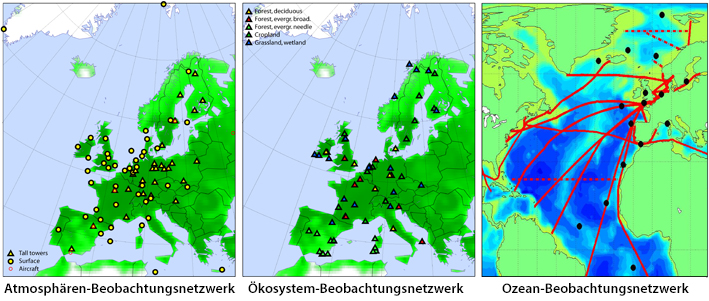A monitoring network for greenhouse gases
The concentrations of carbon dioxide (CO2) and other greenhouse gases (GHG) like methane (CH4) and nitrous oxide (N2O) in the atmosphere are increasing, as global biogeochemical cycles are massively disturbed by humans. Global climate changes resulting from this increase are one of the greatest challenges facing the world today. Therefore, climate policy measures shall support the mitigation of the GHG emission and thereby reduce the negative effects of the climate change. Their success depends, among other things, on the continuous delivery of new data that can help gain a better understanding of biogeochemical processes and confirm their interaction with the global climate through independent measurements. Long-term, precise and internationally comparable observations are essential tools for improving the knowledge about these complex interactions between the climate on the one hand and biosphere, hydrosphere and atmosphere on the other hand. It is a perfect investment to avoid surprises and to reduce uncertainty about the future.
Measurement with utmost precision

ICOS’ ambition is greenhouse gas monitoring at highest available precision. For this purpose, measurements will be conducted in a highly standardized manner and with the most modern analytic devices. The continuous, high-quality and standardized measurements will allow to identify systematic changes in greenhouse gas fluxes, despite a high internal variability
- to reduce uncertainties in corresponding model prediction
- to warn against adverse impacts at an early stage and
- to initiate early adaptation measures and to evaluate the success of climate protection measures
The main objective of ICOS-D, the German contribution to this European infrastructure, is the long-term consolidation of the world’s leading observation networks for atmospheric greenhouse gas concentrations and their exchange with terrestrial and marine ecosystems.
Read more about the background, history and the components of ICOS-D.